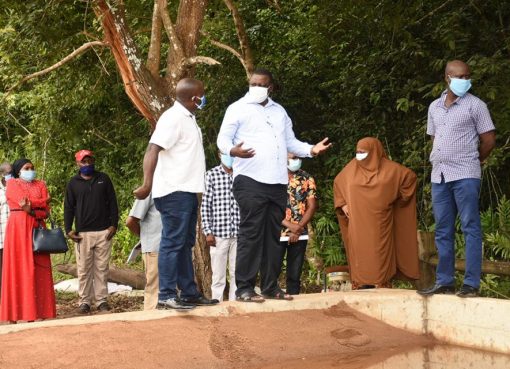Several youths below the age of 45 in West Pokot County are in police custody after involvement in various criminal activities.
The young adults are said to have engaged in unlawful activities such as assault, murder, rape, defilement, cattle rustling, traffic offences, and drug and substance abuse, among others.
School dropouts, banditry, unemployment, poor parental guidance, lack of role models, and early marriages are the main factors attributed to landing youth in detention.
According to West Pokot County Police Commander Peter Kattam, 90% of those arrested in the county are youth, with 96% of them being males who constitute the community’s labour force.
“From our records, 90% of those arrested are aged between 15 to 45 years, and of the percentage, 96% are males,” he states, regretting that quite a number of young, vibrant people in custody would be assisting the community without active human resources.
The police commander appealed to religious, political, educational, and opinion leaders to encourage youths to enrol in technical and vocational training to equip them with the necessary knowledge and skills.
Kattam also called on alumni to visit their schools and the community to encourage young people to appreciate the value of education in society.
Making cognizant that West Pokot is a county that has been less explored, Kattam urges the youth to take advantage by engaging in tourism promotion.
“Youths can train in catering services and work in tourist hotels to earn a living,” Kattam advises.
A former councillor who is currently the Pokot Council of Elders official, Mzee Christopher Lonyala, attributes lawlessness among the youth to food insecurity in most parts of the county.
He narrates that the poor economy in the region puts many youths on the brink of indulging in criminal activities because their parents may fail to fend for their essential needs.
“The high cost of living coupled with unemployment is also to blame for the huge engagement of youth in drug abuse and criminal activities,” Lonyala maintains.
On his part, West Pokot youth peace ambassador Amos Lonyangura said elders were best suited to unite people in West Pokot since they had the mandate to guide the youth.
Lonyangura pleaded with the youth to actively engage in farming activities as a source of livelihood, stating that some areas in West Pokot are highly arable and can contribute to the country’s food basket.
“Some areas like Lelan, Kapenguria, and some parts of Kacheliba are very productive. Other areas with mechanised systems can also be very productive and can open huge avenues for many youths to venture into commercial agriculture,” he explains.
He called on entrepreneurs to consider investing in the county to create employment for the sake of development and to rescue idle youth who end up engaging in crime and subsequently in prison.
He suggests that the banditry and cattle rustling which have put the county on red alert can be stopped if the elders from conflicting communities, chiefs, and village elders are involved in peace and unity missions.
“Chiefs and village elders from all communities, together with all security agencies, can meet and have a solution on issues of pasture and water, which happen to be the main causes of conflicts in the region,” he states.
The youth peace ambassador also appeals to both the national and county governments to drill several boreholes in dry areas to curb human migration rates in search of water.
The county police commander argued that having many youths in jail renders the community’s resources underutilised as the elderly will not have enough personnel to work, thereby increasing poverty levels in the county.
“I don’t want to envisage a scenario where the government should establish police stations in every location. That will show how irresponsible our community is,” he narrates.
He urges all stakeholders to work on mechanisms that can keep youths busy, adding that the skills they would get from technical schools would help them employ themselves.
Katam also urges the youth to keep themselves busy by engaging in sports, saying that many young people are earning a lot through sporting activities. He singled out Faith Kipyegon and Ferdinand Omanyala as examples to this end.
Kattam, who is championing to reduce the number of youth getting involved in criminal activities, appealed to other politicians to avoid inciting young people to unlawful acts, mentioning that many of them cannot raise a bond to be freed from custody once they commit a crime.
“Youth are not able to afford bail or pay court fines once they are found guilty of an offence; hence, they end up forfeiting their freedom,” he reiterates.
By Richard Muhambe and Maurice Osore




